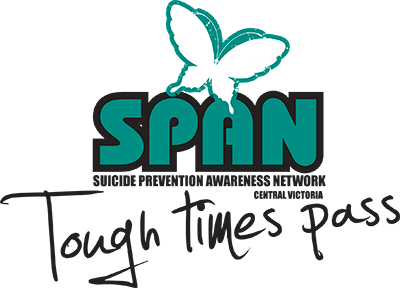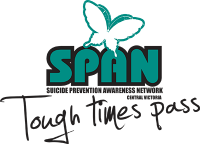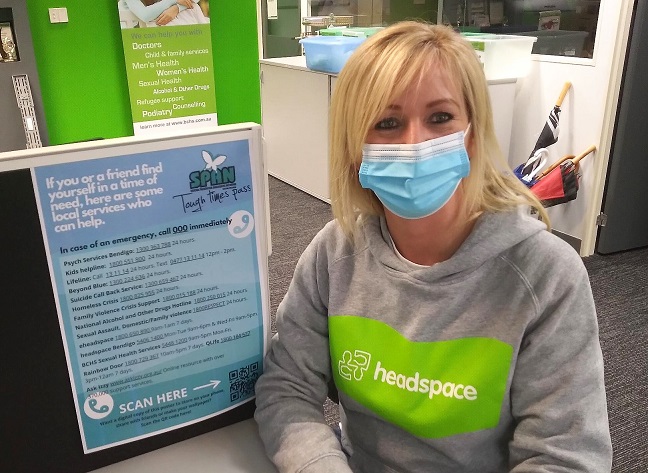We are so excited to launch this new Youth Crisis Card resource on R U OK? Day.
The Crisis Card project is a pocket card and poster resource that outlines the names and numbers of Bendigo and National services that can assist a young person during a crisis.
The project stemmed from members of the Bendigo Suicide Prevention Awareness Network (SPAN) recognising a gap in knowledge about what services are available to provide support to someone when experiencing a crisis.
The Crisis Card was developed through a partnership between SPAN, headspace Bendigo, Anglicare Victoria, Bendigo Community Health Services, Catherine McAuley College, and Bendigo Foodshare.
Aiming to remove the uncertainty around who to seek support from, the Crisis Card provides immediate support and guidance to young people, with current, up-to-date services who will help in their time of need. Young people should be able to access judgement-free and confidential assistance no matter the day, time, or reason.
The Crisis Card resource consists of two elements, a physical pocket card and a poster.
The poster has been launched on R U OK? Day today with the pocket cards being printed and due for distribution in early October.
Download the poster: To download a copy of the Youth Crisis Card poster click here
The pocket card is a physical resource that will be available to young people, their friends, and their families to access. With both sides of the card listing local and national services, it is hoped that its placement in a wallet, school bag, or even in the back of a phone case will provide a sense of support and reassurance that help is always available. In the bottom right-hand corner of the pocket card, is a QR code. When scanned, this code displays a high-quality digital version of the Crisis Card poster, outlining the same services as listed on the pocket card. It is encouraged that community members scan this code and save a copy of the poster on their phone by screenshotting the image. This image can then be stored in a ‘favourites’ album within their phone, or even utilised as a screensaver.
It was important to design a digital copy of this resource, as young people will have greater access to their phones in times of a crisis, and not always a physical pocket card.
Additionally, the poster element of this resource portrays the same information listed on the pocket card. Like the pocket card, the poster has the QR code placed in the bottom right-hand corner which when scanned, displays the digital version. With the intention of the poster to be distributed to organisations and displayed within the community, it is hoped that anyone can scan the QR code and save a copy of the poster to their phones.
We would like to extend our sincerest appreciation to the SPAN committee who are funding this project, as well as the local Bendigo members who completed the ‘Walk for Mental Health’ campaign earlier this year. It is with the support of their donation to SPAN, that projects such as this can be brought to life.
While the Crisis Card sought extensive feedback and evaluation from young people during its design, it is important to acknowledge that this resource is not final, and the team are actively looking for further possibilities and accessibility with its function.
We are determined to ensure that this resource meets the needs of not only young people, but also people from diverse backgrounds, and hope to be able to provide translated copies in the future.
Young people’s voices and opinions are at the forefront of this resource, and we will continue to work closely with them to guarantee the Crisis Card is an effective help-seeking tool and will not get lost in the overwhelming amount of information out there.


